Marketing professionals are the experts behind brand growth. From launching digital campaigns to analyzing results, they improve what works. Marketers combine creativity and strategy to attract, convert and retain customers – whether working in-house or at an agency.
In this guide, you’ll learn what a marketing professional does. You’ll explore common career paths and get actionable tips to start or grow your career in marketing.
What is a marketing professional?
A marketing professional helps businesses reach and engage their target audience. Using research on ideal customer needs, behaviors and preferences, they develop campaigns to promote the right product to the right people at the right time.
Marketing has many specializations because customers interact with businesses through many channels. Channels are spaces where people discover and engage with brands.
For example, an SEO specialist ensures people find your company through Google searches. A social media manager gets you followers on platforms like Instagram and LinkedIn.
Whatever the channel, marketing professionals share a common goal: to attract potential customers and prepare them for sales conversations.
To do this, they guide people through the marketing funnel. Every specialist – whether SEO, social media or PR – creates content for the different funnel stages:
Awareness stage (e.g., blog posts, social media content)
Consideration stage (e.g., comparison guides, case studies)
Decision stage (e.g., sales demos, free trials)
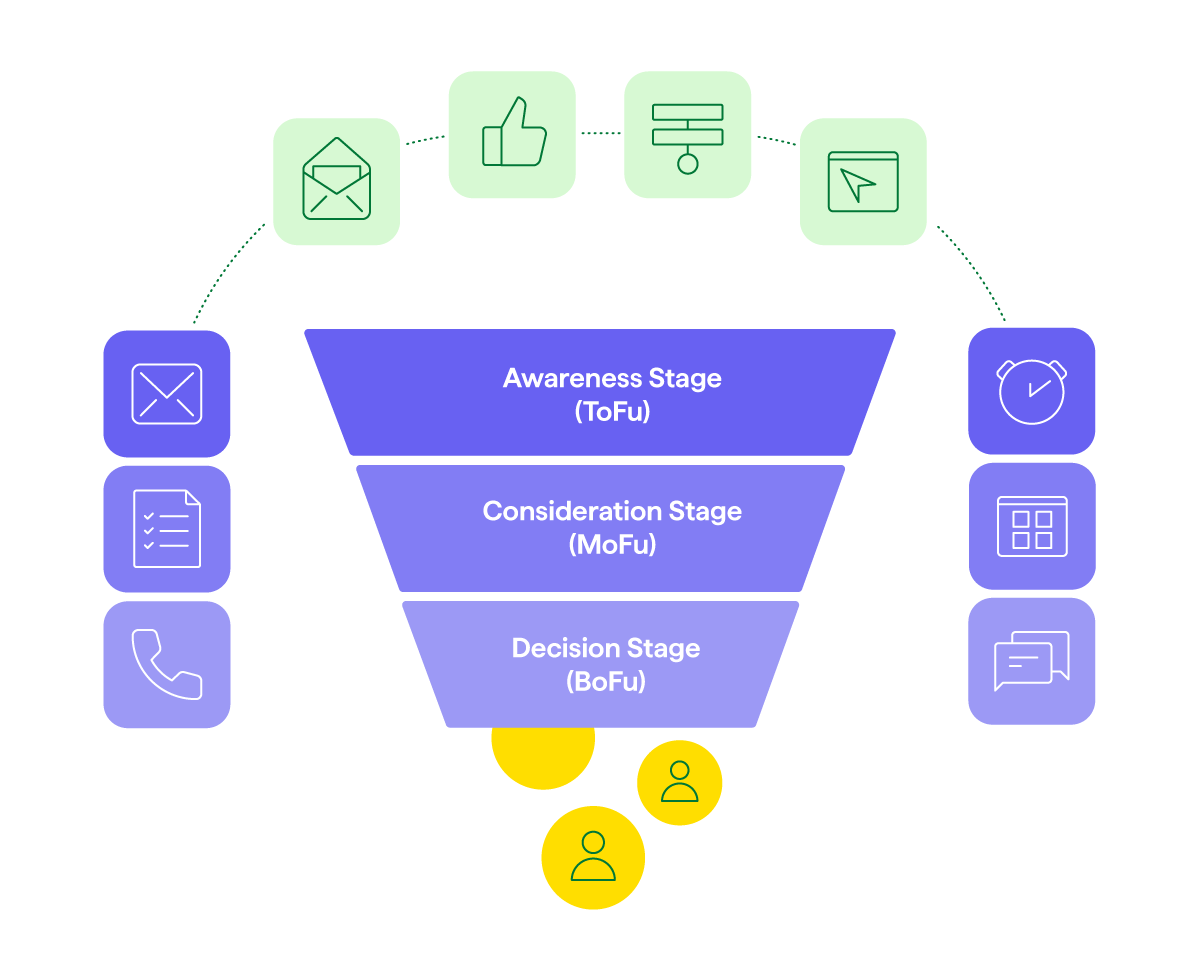
Each stage needs different tactics and messaging.
In the awareness stage, you attract many people at the top, where you educate them about problems they face. During the consideration stage, fewer people stay engaged as you showcase your solution. In the decision stage, you’re left with the most interested sales prospects.
Without a marketing professional, you’re guessing who your customers are and hoping they find you. With one, you strategically find and convert your ideal customers.
Keep in mind that the marketing funnel is a simplified version of the customer journey. Real buying decisions take longer and involve more steps, especially for expensive products or business purchases.
Download our customer journey map template
Traditional vs. digital marketing: what’s the difference?
The main difference between traditional and digital marketing is the channels they use. Simply put:
Traditional marketing uses offline channels (e.g., TV, radio, print ads, billboards)
Digital marketing uses online channels (e.g., websites, social media, email)
Depending on the type of business, marketing professionals may lean toward traditional or digital channels – sometimes a mix of both.
For example, personal injury law firms often succeed with billboards and TV ads. People who need immediate legal help may recall the giant sign they pass by every day.
B2B SaaS businesses that sell marketing management tools work differently. They create helpful blog content about B2B marketing or marketing abbreviations to educate potential users.
When their ideal customer signs up for their email newsletter, they send weekly emails with tips and offer free trials, keeping companies nurturing leads in long sales cycles (e.g., where buying decisions take weeks or months).
A commercial real estate CRM company could take a hybrid approach, running print ads in trade magazines alongside LinkedIn ads, digital lead magnets and email nurturing sequences. This combined strategy helps build authority faster in a niche market.
Not all marketing professionals use content or email marketing strategies – it all depends on the business’s specialization and target audience.
Next, take a look at some career paths you could follow in the marketing space.
Marketing professional career paths
Marketing is a broad field with dozens of careers, each focusing on different channels. Once you choose a path, you can build skills and increase your value as a professional.
Below are some entry-level specializations you can explore.
SEO specialist
A search engine optimization (SEO) specialist improves the chances of people finding your website over competitors. They understand how search engines like Google work and optimize your website using best practices.
For example, say a person types “how to write promotional emails” on Google. Since you sell email marketing software, you’ll want your website to appear at the top of the search results for this query.
With an SEO lead generation approach, you satisfy your customer base’s intent while also showcasing your product.
Some SEO skills you need include:
Google’s quality guidelines knowledge to avoid website penalties
On-page, off-page and technical SEO to boost website visibility
Keyword research to target the terms customers search for
Google Analytics 4 (GA4) and Google Search Console (GSC) to track website performance
SEO works across all search engines (e.g., Bing, Yahoo, YouTube). However, Google dominates 52.87% of search traffic in the US, as shown below. This dominance is why most specialists focus on Google’s guidelines and algorithm updates.
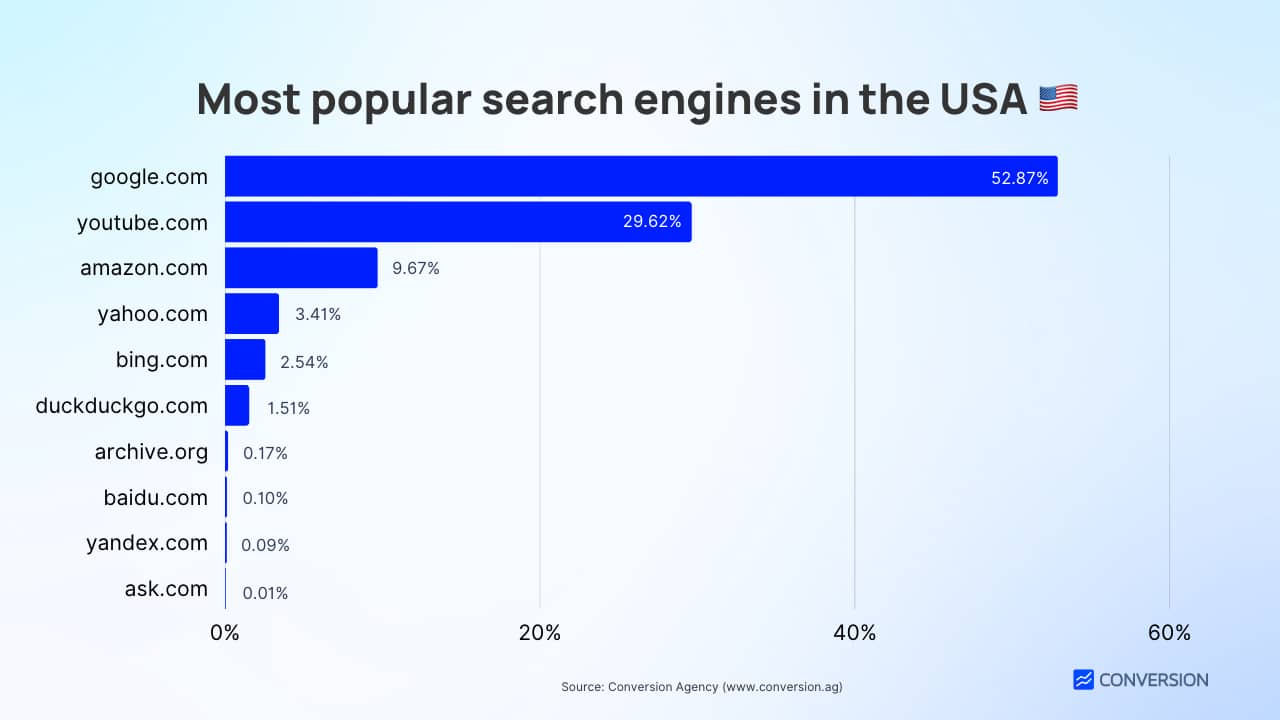
An SEO specialist makes $65k+ per year on average in the US. They can become marketing managers, a director of SEO or a VP of digital marketing.
Content marketer
A content marketer creates content that attracts and converts customers. The content is in different formats, including blog posts, marketing videos, podcasts, infographics, email campaigns and social media.
Most content marketers start as generalists as they learn their strengths. Later on, they can specialize in what excites them the most. For example, you may discover you like writing marketing emails, so you go on to become an email copywriter.
According to leading digital marketing tool Semrush, here are the most common roles within the content marketing industry:
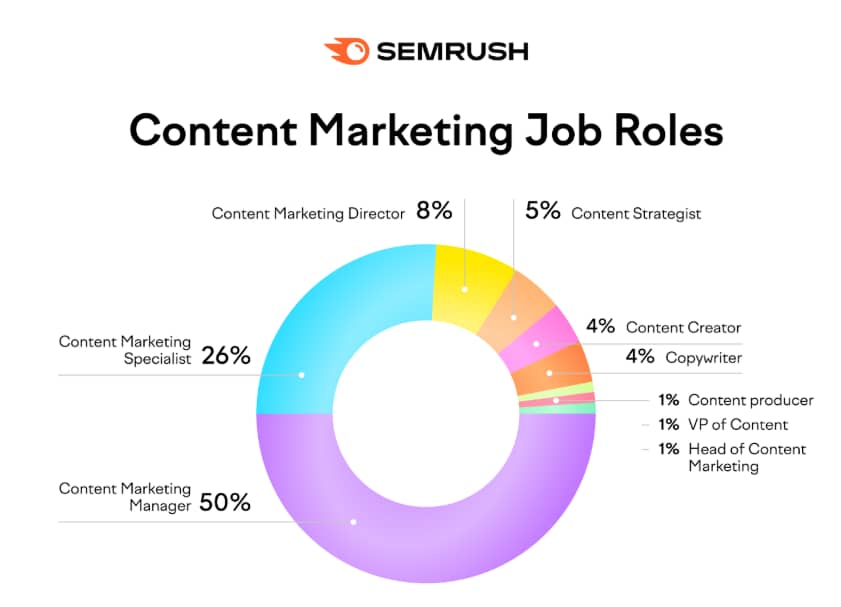
While content marketers specialize in different formats, they all need core skills that apply across every type of content:
SEO writing and keyword optimization to rank articles in online search results
Storytelling and persuasive writing to convert readers into buyers
Brand voice consistency and messaging to build customer trust
Sales psychology and audience pain points to create content that resonates
A content marketer makes an average of $91k per year in the US. However, salaries change based on experience and specialization. People in this role can advance to marketing coordinator, head of content or content marketing director.
Digital advertising specialist
Digital advertising specialists buy ad space on Google, Facebook, LinkedIn and other social media platforms where your customers spend time.
For example, say you sell office management software. A digital advertising specialist sets up campaigns targeting this query and its audience. They write ads highlighting your free trial or pricing, set a $100 daily budget and track every click.
On Facebook, these ads appear in the feed of office managers or business owners, based on job title. On Google, your ad appears at the top of the results, and you only pay when customers click on it.
Some digital advertising skills you need include:
Platform knowledge (e.g., Google Ads, Meta Ads, LinkedIn Ads) to maximize ad performance across channels
Budget management and bid optimization to get more results per dollar
A/B testing and conversion tracking to know what drives sales
Analytics and ROI measurement to prove campaign success
A digital advertising specialist makes around $56k per year in the US. They can advance to PPC manager, director of paid media or VP of performance marketing.
Note: The role of digital advertisers keeps growing in importance, with the US’s digital ad spend forecast to reach $460.5 billion by 2028.
Social media specialist
Social media marketing specialists manage your company’s online presence across social platforms. They create content, attract followers and engage with them to turn them into buyers.
Social media has become essential for tracking customer sentiment around your brand. As you can see below, 60% of companies review social media analytics daily. This data helps you watch out for industry trends, customer complaints and opportunities to connect with your audience.
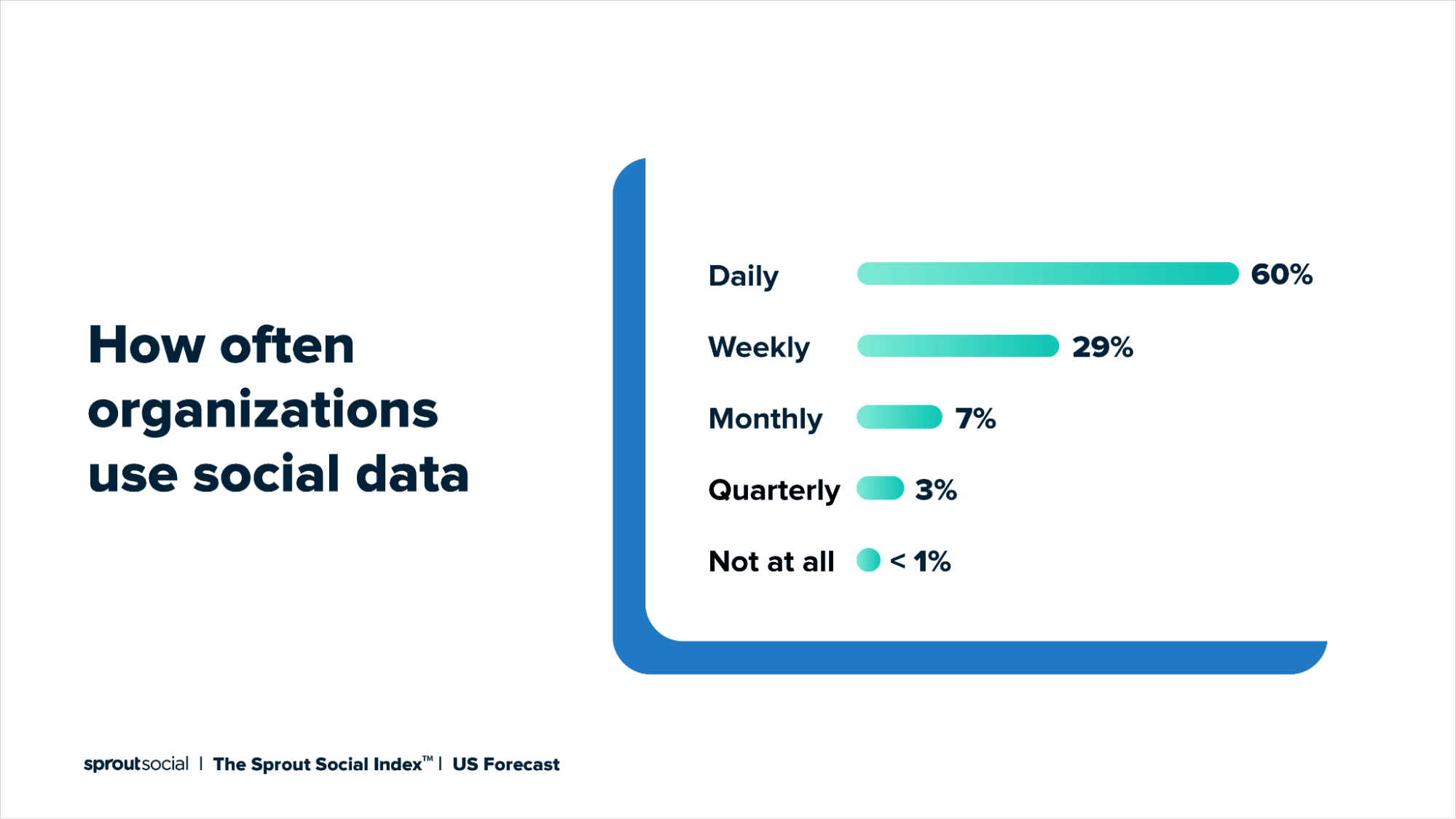
Some social media skills you need include:
Platform-specific content creation and copywriting to engage your audience
Community management and customer service to build loyal followers
Social analytics and marketing reporting to track what drives customer conversions
A social media specialist makes $54k+ per year in the US. They can advance to social media manager, director of social media or VP of digital marketing.
PR/Communications coordinator
Public relations (PR) specialists secure media coverage without incurring ad costs. Featuring your company in a major publication builds more trust than dozens of ads.
The PR specialist’s job is to know which reporter at which publication would care about your brand story. If your company launches a new product, PR specialists write press releases about it. They also pitch reporters at online publications like Forbes or TechCrunch.
When journalists need expert quotes, PR specialists position your marketing executives as the go-to source, securing partnerships with media outlets.
PR specialists work across many channels:
Traditional media (newspapers, TV, radio)
Online publications and blogs
Podcasts and YouTube channels
Speaking opportunities at conferences
The core skill for a PR specialist is media relations. You’ll need to understand the media landscape and build genuine relationships with journalists.
A PR assistant makes $52k+ per year on average in the US. They can advance to PR manager, director of marketing communications or VP of public relations.
Brand marketing specialist
Brand marketing specialists shape how people perceive your company while building brand awareness. They define your brand’s purpose, personality and promise across every customer experience.
Brand specialists often use Simon Sinek’s Golden Circle to grow strong brands. First, they define your “why” (the purpose that drives your company), your “how” (what makes you different) and your “what” (the products you sell).
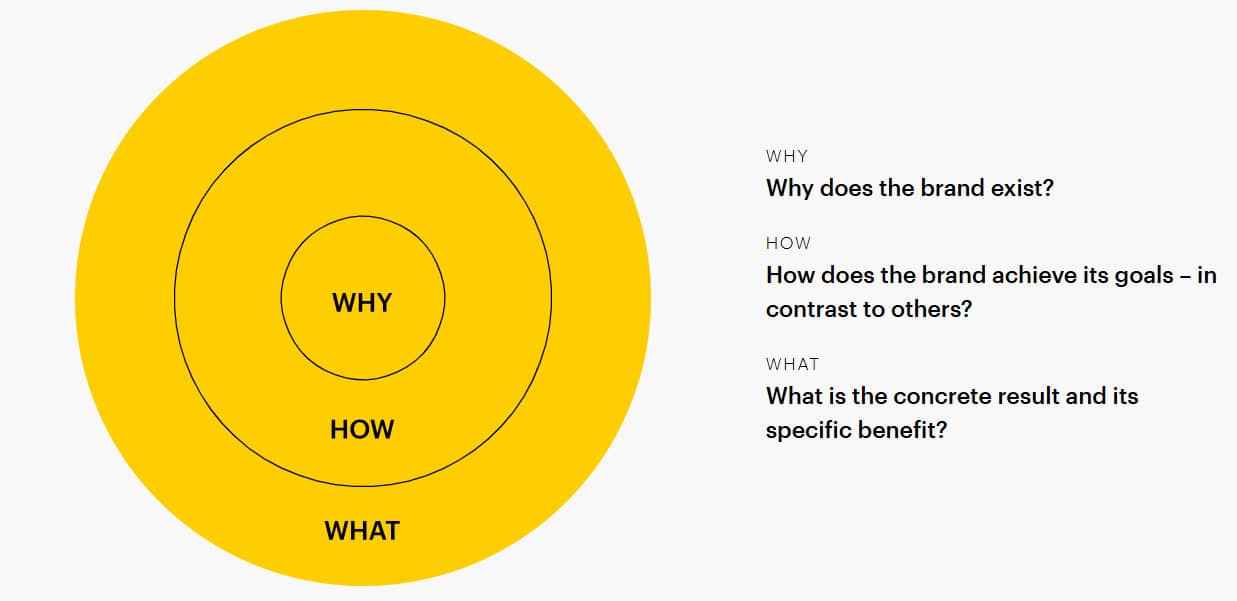
The brand specialist’s job is to make sure every piece of content reflects the same core purpose and values. Some brand marketing skills you need include:
Brand strategy and positioning to differentiate your business from competitors
Market research and consumer behavior to understand customers’ motivations
Visual identity and design principles so potential buyers remember you
Cross-functional leadership to align teams around brand goals
A brand specialist typically makes $73k+ per year in the US. They can advance to brand manager, product marketing manager, director of brand or chief brand officer.
Beyond choosing a specific path, it’s important to recognize the qualities that make a great marketer. Below, you can explore a few core skills.
What makes a successful marketing professional?
The most successful marketing professionals are T-shaped, with a combination of soft skills. They have broad knowledge across marketing and specialist skills in one field.
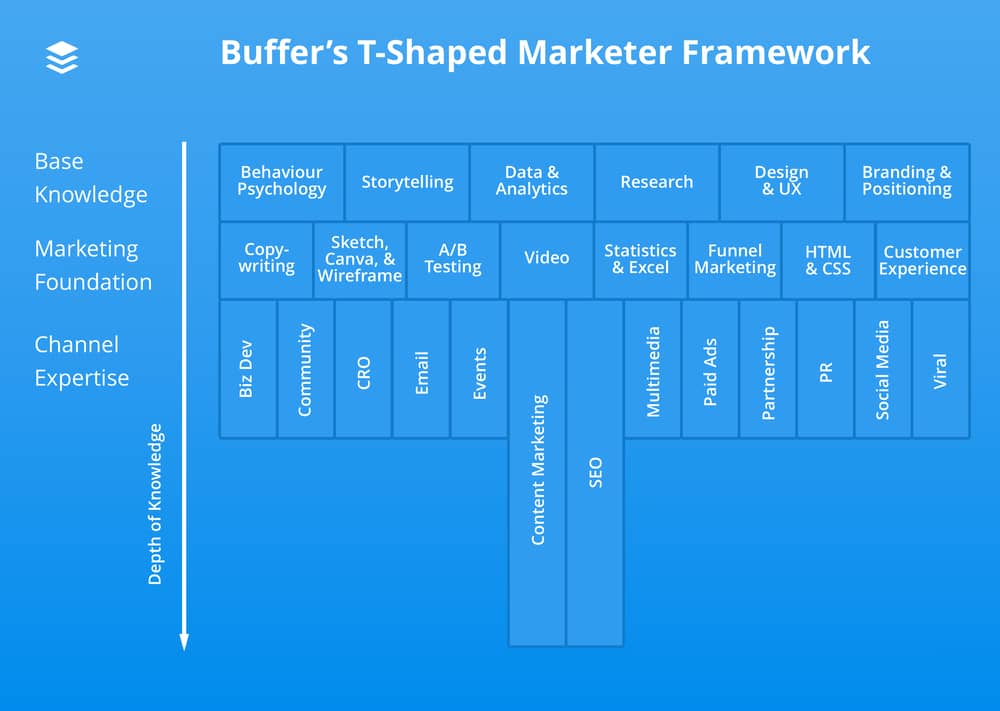
The above diagram fits the abilities of a T-shaped marketer into three categories.
Base knowledge includes general business skills that help in any marketing role. You’ll need to do your marketing research to understand psychological selling, storytelling and work with data.
Marketing foundation covers the core skills you’ll use across all channels. The basics apply whether you work in social media, email or any other area.
Channel expertise happens when you master one specific way to reach customers. You delve deep into SEO, paid ads, content or whichever path you choose.
While these technical skills get your foot in the door, the soft skills below shape how far you’ll go:
Critical thinking. Digital marketing professionals face conflicting information daily. You could get campaign results showing 1,000 clicks, but only 10 conversions. Critical thinking helps you check data, question assumptions and find the real issue. Maybe your landing page loads slowly, or your message doesn’t match the ad.
Problem solving. Not all marketing campaigns go as planned. With platforms like Google changing their algorithms regularly, marketing professionals need to find creative solutions and turn obstacles into opportunities.
Communication skills. Marketing professionals need to excel at two-way communication. They need to listen to customer feedback and process market trends. From this, they create marketing strategies with messaging that connects with audiences.
Customer centricity. The best marketing comes from understanding what customers actually want, not what you think they need. Customer-centric marketers research pain points, read customer surveys and interact with real users.
Results-oriented approach. Results-driven marketers set marketing OKRs and clear business goals while also tracking key marketing metrics. They improve faster because they know exactly what works and what doesn’t.
Many marketers focus on developing technical knowledge. However, professionals who combine technical knowledge with these soft skills stay valuable no matter how the industry changes.
Now that you understand the skills and career paths you could take, it’s your time to flourish into a true marketing professional.
How to become a marketing professional
Breaking into marketing is easier than most people think. You start by building knowledge, then work on your own projects, test the outcomes and repeat.
Here are five steps you can follow to launch your professional marketing career.
Step 1: choose your marketing specialization
Start by choosing a marketing channel that interests you, keeping your existing skillset and strengths in mind. Building on your strengths means you’ll learn faster and gain a competitive edge.
If you love writing, consider a career in content marketing or copywriting. If you enjoy analyzing data, try SEO or paid advertising.
You can then test your commitment for a few days. Do research on the specific role or field you chose. Watch YouTube tutorials or read marketing blogs to learn more.
Note: Your first choice isn’t permanent. Many content marketers become SEO specialists. Social media managers can move into paid advertising. Whether you work in an in-house marketing department or a small agency, the key is to pick one direction and get started.
Step 2: build foundational knowledge
Most of what you need to know about marketing is already available for free online. To build consistency, begin by signing up for free marketing courses on Coursera.
You can find digital marketing courses for every knowledge level (from beginner to expert) in many languages.
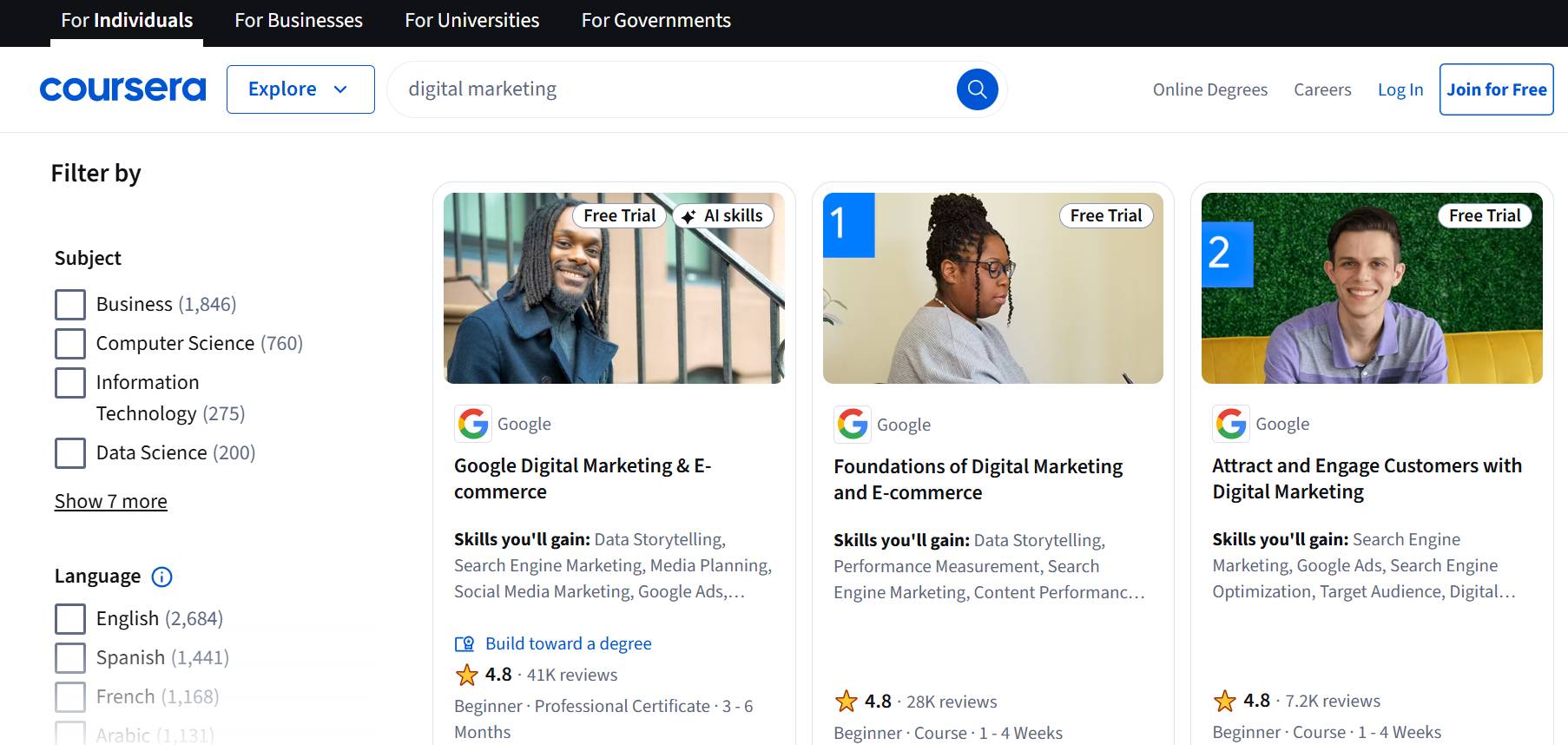
Pipedrive Academy also offers free courses focused on sales and marketing alignment.
Commit to 15–30 minutes daily of study. Once you finish your first course, consider switching to another field (if you don’t like it) or continue to deepen your knowledge.
To build up your marketing know-how:
Follow industry leaders – find experts in your specialty on LinkedIn and learn from them (e.g., Neil Patel for SEO)
Read marketing blogs – bookmark digital marketing guides or blogs and read one post daily or regularly (e.g., Semrush Blog, Content Marketing Institute)
Subscribe to newsletters – sign up for Morning Brew and one specialty newsletter (e.g., Pipedrive’s newsletter for email)
Join specialized communities – pick communities on Reddit, LinkedIn or even a Slack group to actively take part in (e.g., r/marketing on Reddit)
Improve your chances of retaining information and learning by taking notes and writing key takeaways. Question everything by asking yourself why a tactic works and whether it applies to your situation.
You can also test your understanding of a topic by explaining concepts to others. Write LinkedIn posts summarizing what you learned or answer questions in marketing communities. Teaching forces you to clarify fuzzy concepts.
Step 3: gain hands-on experience
While theoretical knowledge is important, nothing beats real-world experience. You can start with small projects that show your understanding of the concepts.
Here are some ideas you can work on:
Project | Skills and roles |
Build a blog with 10 quality posts and track their performance |
Roles: content marketing and SEO specialists |
Email newsletter for local business |
Roles: continent marketing specialist and copywriter |
Grow Instagram to 1,000 followers |
Role: social media and brand specialist |
$50 Google Ads campaign |
Role: digital advertising specialist |
Besides working on your own marketing projects, you can also reach out to non-profits to exercise what you’re best at. Catchafire is a space where you can volunteer your marketing skills to causes you believe in.
Step 4: build a portfolio
A good portfolio may dictate whether you get interviews or not. There are many platforms where you can put up your projects at no cost (e.g., LinkedIn, Authory.com, Medium).
For example, on LinkedIn, you can write blog posts highlighting your projects. Document everything from failures to successes, and make sure to include screenshots as well as statistics.
This approach works for any of your projects. If you have a social media account, take screenshots of posts that performed well and their metrics. Explain your thinking and the strategies you employed.
Step 5: prepare for interviews
Apply to marketing jobs directly from company websites and practice how to answer common interview questions.
You’ll likely get questions about marketing concepts or on your projects. Interviewers may ask, “How would you improve our SEO?”, “Tell me about a campaign that didn’t work” or “Talk to me about [project]”.
Practice the STAR method (Situation, Task, Action, Result) and answer with honesty. Focus on what you learned from each experience, especially failures.
Before you send your first application, make sure you have these three nailed down:
Optimized LinkedIn profile with keywords from your target roles
One-page resume highlighting marketing projects and results
Robust portfolio showcasing projects with clear outcomes
Remember to include percentage improvements in these. “Increased Instagram engagement by 45%” beats “managed social media account”. Specificity will help interviewers understand how you measure success, not just that you can complete tasks.
Final thoughts
Marketing professionals drive business growth by connecting companies with their ideal customers through strategic campaigns and data-driven decisions.
Whether you choose SEO, content marketing, social media or another specialty, success as a marketer comes from combining technical and soft skills.
To kick-start a career in marketing, pick a specialization that matches your strengths, learn through free resources and create projects that prove real impact. With focused effort and the roadmap in this guide, you’ll be ready for your first marketing role within months.
Time to start learning? Check out Pipedrive Academy’s free marketing courses to fuel your marketing journey.






